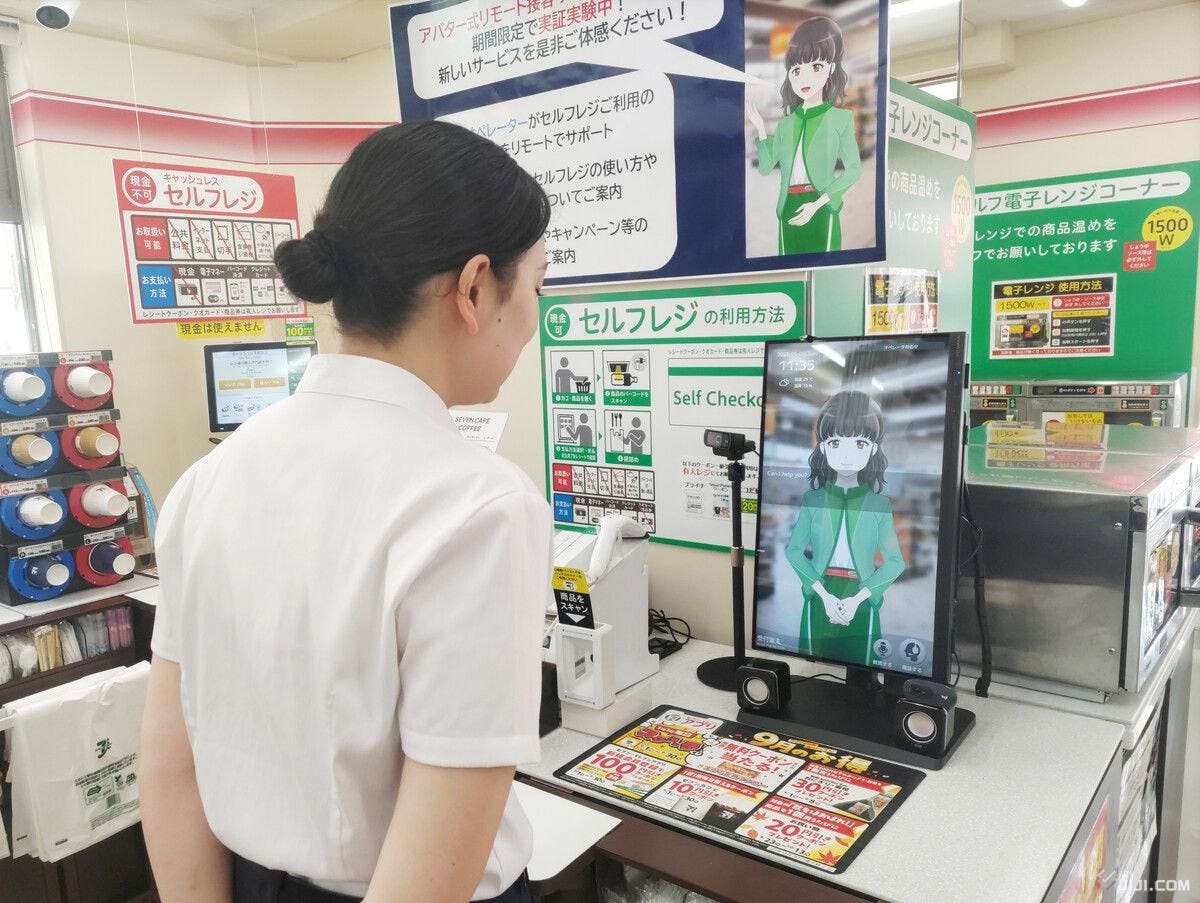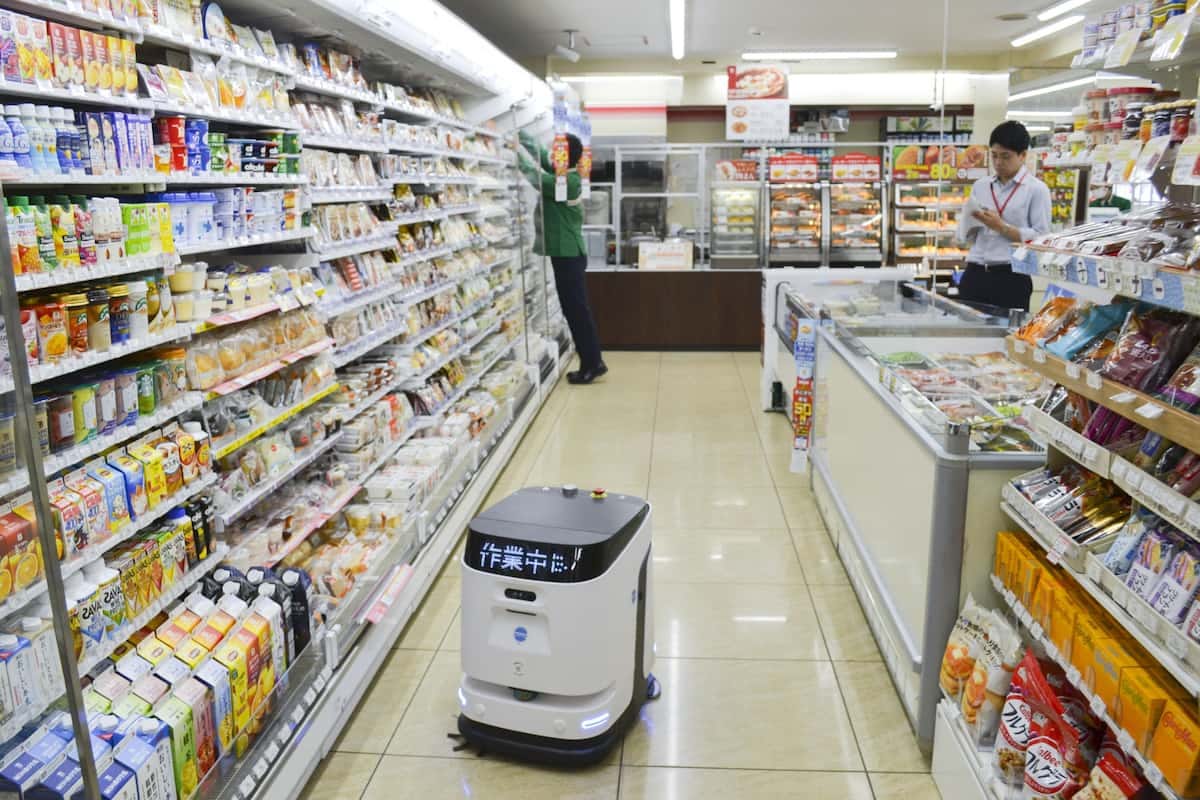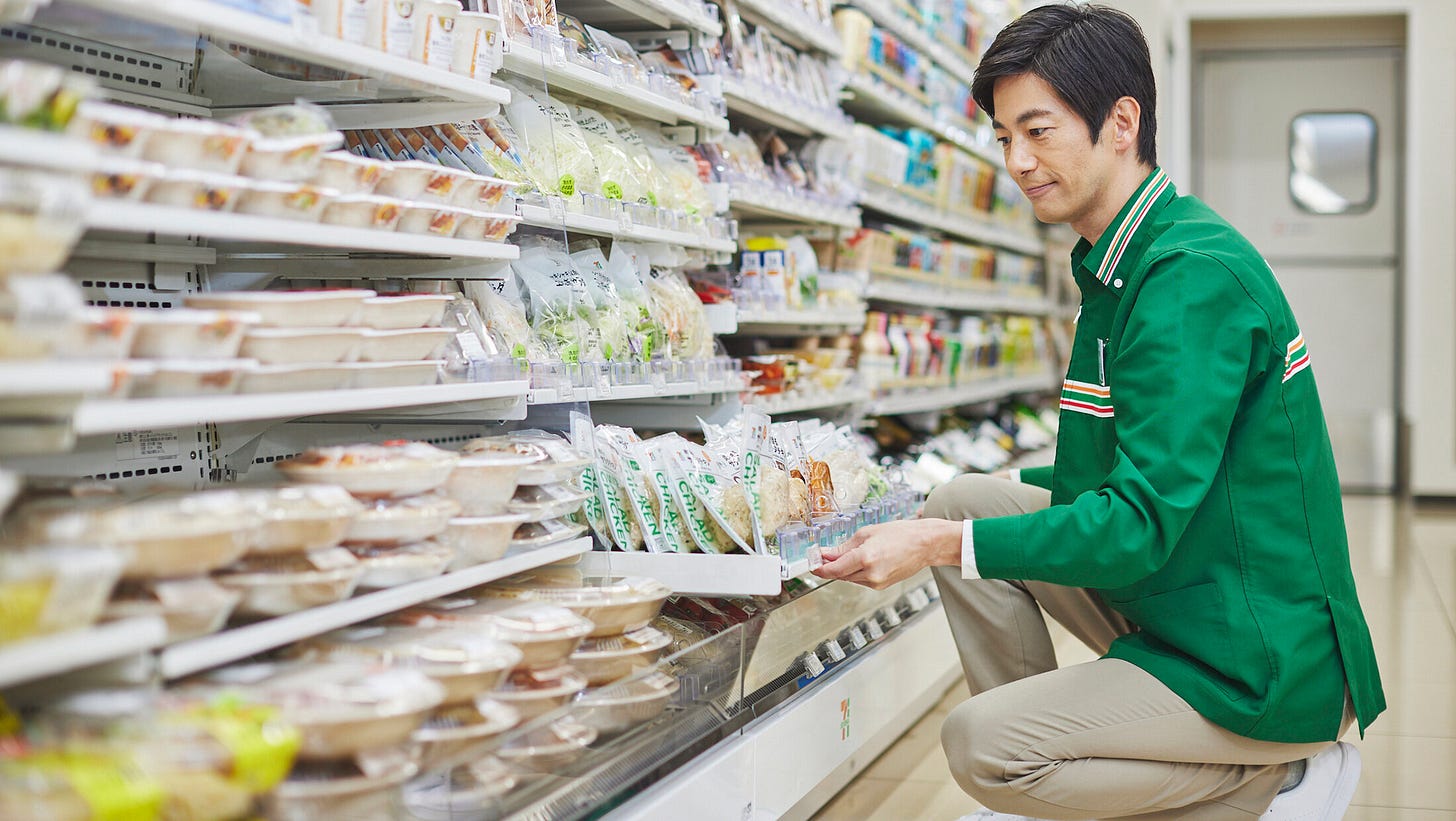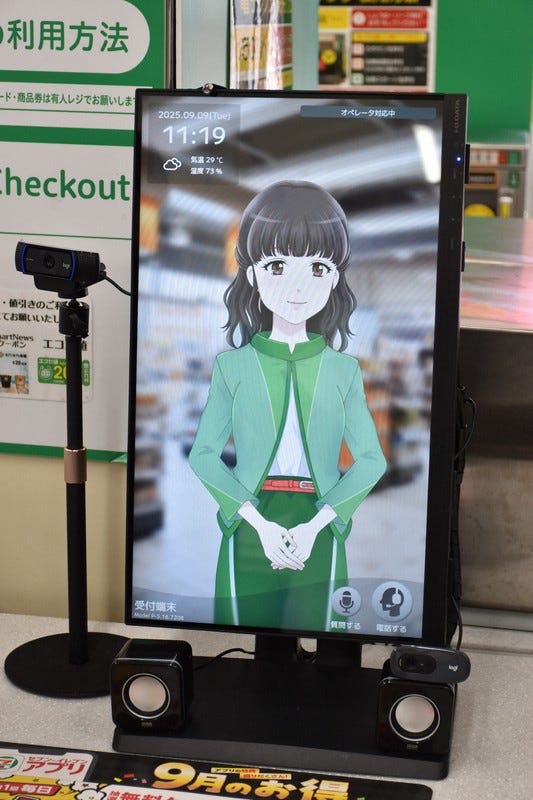7-Eleven Japan Bets on AI Avatars to Cut Store Labor by 30 Percent
Japanese pop culture news edited by Patrick Macias
Remote AI avatar service lets operators support multiple stores in real time
Automation trial includes robots stocking shelves and cleaning floors in Tokyo
Labor shortages and limited immigration drive push toward convenience store automation
Avatars Step Up Behind the Counter
Seven-Eleven Japan is making AI avatars a centerpiece of its new automation strategy. On September 9, the company unveiled a trial in Tokyo where remote operators appear on a register screen through an avatar to assist customers in multiple languages. By handling customer service off site, one operator can cover several stores at once, cutting the need for on site staff.
Robots Handle Repetitive Tasks
Alongside avatars, the company is testing self-driving robots that refill shelves with bottled drinks and canned alcohol. The robots can pick products from randomly stacked backroom inventory and place them on display. They also feature automatic window and floor cleaning functions. Seven-Eleven expects these measures combined to reduce daily labor needs by about 30 percent.
Rising Costs and Shrinking Labor Supply
According to Hiroki Takei, head of operations, rising prices and wages mean the company cannot rely solely on higher sales. In 2024, labor costs for convenience stores in Japan increased by over 10 percent, putting pressure on franchise owners. With strict immigration rules limiting the inflow of foreign workers, automation is becoming a key solution for covering late night shifts and easing workloads.
A Market Worth Billions of Yen
Japan’s convenience store sector operates more than 55,000 outlets nationwide. Even a modest labor reduction at each store could represent billions of yen in savings each year. Seven-Eleven is also expanding high margin counter items such as fresh bread and donuts, raising demand for new labor saving systems that balance efficiency with service.
Competitors Join the Automation Push
Convenience store chain Lawson has operated avatar service since 2022 at 28 stores, with around 80 remote operators, including overseas staff working overnight. In July 2025, Lawson introduced cooking robots that prepare fried rice and other items on site. FamilyMart has deployed multifunction cleaning robots, saving about one hour of manual work per day, and plans to roll out 1,000 units nationwide starting in 2026 at a cost of several billion yen (tens of millions of dollars).
AI Avatars and the Future of Convenience Stores
The adoption of AI avatars points to a long term transformation in Japan’s convenience retail industry. By offsetting limited labor supply and immigration restrictions with digital and robotic tools, companies aim to maintain service levels while improving efficiency. For Seven-Eleven and its competitors, the success of these trials could determine how convenience stores operate in the coming decade.






